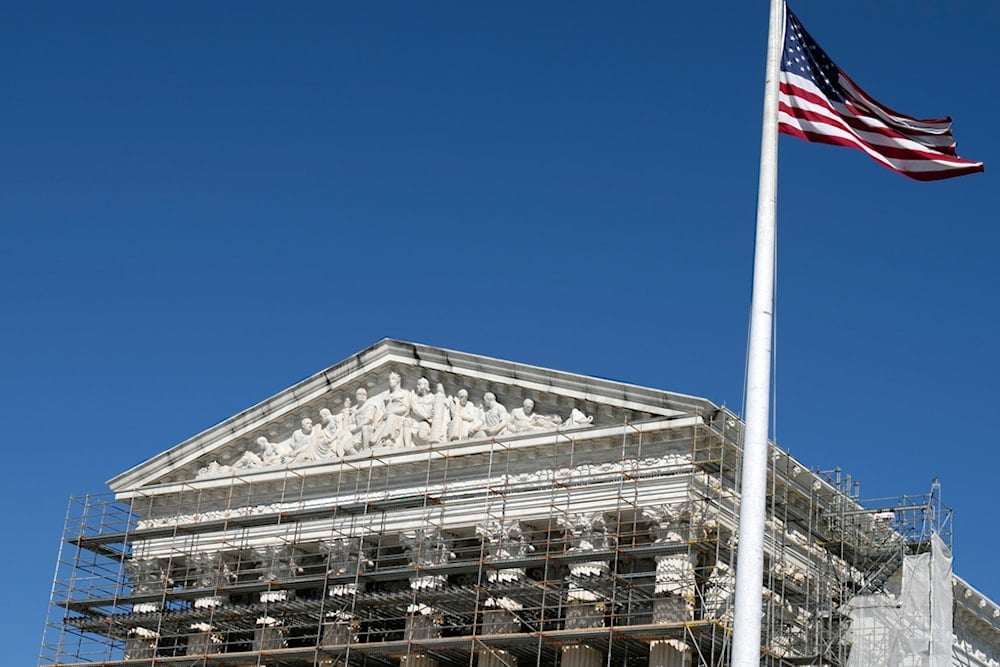Supreme Court backs Trump plan to deport 500,000 migrants
On his return to office, President Donald Trump signed an executive order directing the Department of Homeland Security (DHS) to terminate categorical parole programs, including CHNV.
-

Construction scaffolding is in place at the Supreme Court Tuesday, April 1, 2025, in Washington (AP Photo/Rahmat Gul)
The US Supreme Court has ruled in favor of the Trump administration in a case that could result in the deportation of nearly 500,000 migrants from Cuba, Haiti, Nicaragua, and Venezuela.
The decision allows federal authorities to proceed with dismantling the CHNV parole program introduced under former President Joe Biden.
"The application for stay presented to JUSTICE JACKSON and by her referred to the Court is granted," the ruling states, effectively overturning a lower court's injunction that had temporarily blocked the administration’s move.
Parole Terminated
The CHNV (Cuba, Haiti, Nicaragua, Venezuela) initiative granted two-year temporary protection and work authorization to individuals fleeing political instability and economic hardship. Migrants were required to pass background checks and have financial sponsors.
Launched by the Biden administration, the program aimed to provide a safe and legal alternative to irregular migration.
On his return to office, President Donald Trump signed an executive order directing the Department of Homeland Security (DHS) to terminate categorical parole programs, including CHNV.
DHS Secretary Kristi Noem formally announced the program’s end in March 2025, stating that all existing parolees would lose their temporary status.
Judicial Shift
The Supreme Court's decision concludes more than two months of litigation. Justices Ketanji Brown Jackson and Sonia Sotomayor dissented, cautioning against the consequences of such a ruling.
"The Trump administration did not prove that the presence of paroled migrants in the United States caused irreparable harm," they wrote, stressing the disruption to the lives of migrants who had complied with all legal requirements.
Earlier this month, the Court had also overturned a district ruling that had preserved deportation protections for approximately 350,000 Venezuelans, signaling a broader legal shift against humanitarian parole under Trump’s renewed immigration agenda.
Read more: DHS emails warn Afghan refugees in US: The government will find you
Immigrant advocacy groups have condemned the ruling, warning of impending mass deportations and calling the decision a blow to humanitarian relief efforts.
Critics argue that ending the program without case-by-case review violates federal parole standards and undermines legal pathways for vulnerable populations.

 2 Min Read
2 Min Read








